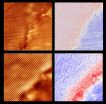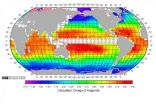(Press-News.org) INDIANAPOLIS -- A Regenstrief Institute and Eskenazi Health study reports on an innovative program that trains and supervises volunteers who act as advocates for adults and seniors who are unable to make their own decisions due to conditions like Alzheimer's disease or coma, but have no family or friends to help them. The study found that the program could serve as a national model to replace or complement the frequently overwhelmed guardianship services provided by state agencies from coast to coast.
Incapacitated patients who lack surrogates present a complex problem for health care providers as well as for the hospitals and nursing facilities. A study of the design and first two years of the new program appears online in advance of publication in the Journal of the American Geriatrics Society.
Nationwide, public guardianship programs struggle with case overloads. They often are responsible for tens or even hundreds of at-risk individuals. As reported in the JAGS study, the volunteer advocates are responsible for one or, at most, two individuals. Several advocates accepted multiple sequential cases. The program had no problem recruiting volunteer advocates.
The JAGS study followed the first 50 patients in the Wishard Volunteer Advocates Program. The volunteers protect the interests of the incapacitated patients they serve while they are in the hospital. The volunteers are supervised by the program director, who is an attorney, and legal guardianship is formally assigned to the Volunteer Advocates Program. The program continues to serve patients after they have been transitioned to health care facilities or returned home. In the study, more than 90 percent of those who survived hospitalization were transferred to nursing facilities.
"Adults who cannot make decisions for themselves because of developmental problems, injury or dementia and who are without family or other surrogate decision-makers are among the most vulnerable individuals in any community," said Robin J. Bandy, J.D., M.A., the program's founding director.
"Many do not have family or are estranged from them, and may be neglected or abused. They are alone and at risk for receiving inappropriate medical treatment and not getting government benefits for which they qualify.
"The volunteer model provides patients with someone who has the same compassion and better training and support than that of most loving family members," she said. "I am in awe of how these volunteers who included law, medical and social work students as well as employed and retired individuals with a variety of backgrounds dug in and made genuine committed efforts to get to know the patient to whom they were assigned. They did their best to both understand them and to make the difficult decisions the patients couldn't make for themselves."
Volunteer advocates in the program made health care decisions, including end-of-life decisions; facilitated post-hospitalization placement to nursing facilities; were often the only person to follow care in the nursing home after hospital discharge; tracked down important but often elusive paperwork needed for Medicare and Medicaid eligibility; and made limited financial decisions.
The patients in the study ranged in age from 22 to 90, with an average age of 67. All but one of the patients had at least four medical conditions at the time of hospitalization, indicating the need for complex medical care and difficult decision-making.
Among those assigned volunteer advocates after hospitalization were:
An 85-year-old woman with dementia who had been living alone with her dead cat in an uninhabitable apartment.
A 65-year-old woman with dementia removed from her son's care after he broke her arm.
A 90-year-old man removed from his home, malnourished and covered in urine, feces and bedbugs; "caregivers" were exploiting him and not allowing access to food, medicine or appropriate medical care.
"A growing number of adults are all alone. The need for surrogate decision-makers is increasing as our population ages, as divorce becomes more common, as families are geographically dispersed," said the study's senior author, Alexia Torke, M.D., a Regenstrief Institute and Indiana University Center for Aging Research investigator and an associate professor of medicine at the IU School of Medicine.
"The default of the American medical system is aggressive care with its high personal and health system costs. The volunteer advocate model promotes thoughtful consideration of what is best for the patient," said Dr. Torke, an internist and medical ethicist who has conducted a number of studies on surrogate decision-making. "Adults and especially older adults without surrogates are at risk for receiving medical overtreatment due to fears of legal consequences if interventions are withheld, or under-treatment, as interventions are delayed or not performed at all due to lack of consent. In previous studies we have shown that patients need and physicians welcome surrogate decision-makers and the volunteer advocates perform this function admirably."
In addition to providing voices for these patients, the volunteer advocates afforded institutional value by completing Medicaid applications resulting in $297,481.62 in reimbursement for hospital services. Securing Medicaid as a payer source also facilitated quicker placement in nursing facilities.
The Volunteer Advocates Program was developed at Wishard Health Services, now known as Eskenazi Health, an urban, public safety-net health care system that is among the busiest safety-net hospitals in the United States. The individuals followed in the study from 2010 to 2012 were patients of both Wishard and Indiana University Health. In May 2013, the volunteer advocates program moved to the nonprofit Center for At-Risk Elders and is expanding to serve other health care systems in Indiana.
INFORMATION:
The Retirement Research Foundation of Chicago provided grant funding for this study. In addition to Bandy, now with the Charles Warren Fairbanks Center for Medical Ethics at Indiana University Health, and Dr. Torke, authors of the JAGS study are Regenstrief Institute investigator Greg A. Sachs, M.D., professor of medicine and director of the Division of General Internal Medicine and Geriatrics at the IU School of Medicine; Kianna Montz, M.A., and Lev Inger, B.S., of the Regenstrief Institute; and Robert W. Bandy, M.S., who volunteered his time and statistical expertise to the program.
OAK RIDGE, Tenn., Nov. 10, 2014--Scientists at the Department of Energy's Oak Ridge National Laboratory have made the first direct observations of a one-dimensional boundary separating two different, atom-thin materials, enabling studies of long-theorized phenomena at these interfaces.
Theorists have predicted the existence of intriguing properties at one-dimensional (1-D) boundaries between two crystalline components, but experimental verification has eluded researchers because atomically precise 1-D interfaces are difficult to construct.
"While many theoretical ...
Autoimmune diseases like Crohn's Disease and multiple sclerosis, in which the immune system attacks its own body rather than predatory invaders, affect 5-20% of the global community. A study published recently in Autoimmunity Reviews by Prof. Yehuda Shoenfeld, the Laura Schwarz-Kipp Chair for Research of Autoimmune Diseases at Tel Aviv University's Sackler Faculty of Medicine and Head of Zabludowicz Center for Autoimmune Diseases at Chaim Sheba Medical Center, Tel Hashomer, points to the major role obesity plays in triggering and prolonging these autoimmune diseases.
According ...
Stanford, CA--Photosynthesis is probably the most well-known aspect of plant biochemistry. It enables plants, algae, and select bacteria to transform the energy from sunlight during the daytime into chemical energy in the form of sugars and starches (as well as oils and proteins), and it involves taking in carbon dioxide from the air and releasing oxygen derived from water molecules. Photosynthetic organisms undergo other types of biochemical reactions at night, when they generate energy by breaking down those sugars and starches that were stored during the day.
Cells ...
A team of scientists has published the most comprehensive picture yet of how acidity levels vary across the world's oceans, providing a benchmark for years to come as enormous amounts of human-caused carbon emissions continue to wind up at sea.
"We have established a global standard for future changes to be measured," said Taro Takahashi, a geochemist at Columbia's Lamont-Doherty Earth Observatory who published the maps with his colleagues in the August issue of the journal Marine Chemistry. The maps provide a monthly look at how ocean acidity rises and falls by season ...
Research scientists at VTT Technical Research Centre of Finland have demonstrated a new technique for generating electrical energy. The new method can be used in harvesting energy from mechanical vibrations of the environment and converting it into electricity. Energy harvesters are needed, for example, in wireless self-powered sensors and medical implants, where they could ultimately replace batteries. In the future, energy harvesters can open up new opportunities in many application areas such as wearable electronics.
Research scientists at VTT have successfully generated ...
New Rochelle, NY, November 10, 2014--To understand their risk for hereditary forms of cancer, such as breast and colon cancer, women need to know their family history. The design and effectiveness of a 20-minute skills-based intervention that can help women better communicate with relatives and gather and share information about cancer family history is described in a study in Journal of Women's Health, a peer-reviewed publication from Mary Ann Liebert, Inc., publishers. The article is available free on the Journal of Women's Health website at http://online.liebertpub.com/doi/full/10.1089/jwh.2014.4754 ...
A new drug combination for rheumatoid arthritis treats the disease just as well as other intensive treatment strategies but with less medication and fewer side effects at a significantly lower cost. Doctoral researcher Diederik De Cock (KU Leuven) describes the strategy in a new study published in Annals of Rheumatic Diseases.
Rheumatoid arthritis (RA) is a chronic auto-immune disease that causes pain and stiffness in the joints, fatigue, bone damage and, eventually, loss of mobility. RA afflicts around 1% of people in the western world; in Belgium, 80,000 to 100,000 ...
Hidden away in the tropical darkness of nocturnal Madagascar, scientists have discovered a new species of gecko which has been described in the open access journal Zoosystematics and Evolution.
A master of disguise, the new species Paroedura hordiesi has camouflage pattern to blend with its natural habitat, while climbing on rocks and the ruins of an old fort, where it was spotted by scientists.
Home of the new gecko, the karstic limestone massifs in the region of northern Madagascar are believed to still harbour further undescribed reptile species, some of which might ...
BOSTON - The innate immune system serves as the body's specialized armed forces division, comprised of a host of defense mechanisms used to battle bacterial infections. Among the system's warriors are white blood cells including the specialized macrophages, which maintain constant surveillance for foreign intruders or pathogens, functioning as the body's first line of defense, poised to attack at barrier sites including the skin, lungs and intestines.
Now, a research team led by investigators at Beth Israel Deaconess Medical Center (BIDMC) finds that naturally occurring ...
Recognizing the emotions other people feel is crucial for establishing proper interpersonal relations. To do so, we look at (amongst other things) facial expressions and body posture. Unfortunately, in some neurological disorders this ability is heavily impaired. This happens, for example, in multiple sclerosis where scientific evidence shows that people affected by the disease often have trouble recognizing expressions that communicate emotions. A new study now demonstrates that the same difficulty may also be encountered with emotions conveyed by posture. In addition, ...





